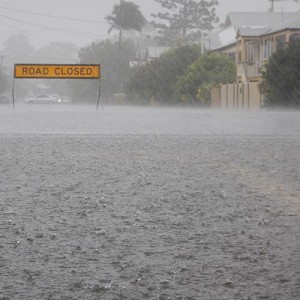
3 March 2016
A new report by the Australian Business Roundtable has found that the economic impact of natural disasters in Australia is expected to balloon in the next decade. At the moment, natural disasters in Australia do $9 billion of economic damage per year, set increase to an average of $33 billion per year by 2020. The social impact of these disasters, often overlooked, was highlighted as another major cost.
Climate change is clearly a key factor. The report cites the IPCC, stating that there will be an ‘increased frequency and intensity of flood damage to settlements and infrastructure in Australia’, an increase in ‘the number of days with… extreme fire weather’ and ‘greater frequency and intensity of droughts’. The report also cites CSIRO research which reaffirms this forecast.
The report makes four recommendations:
- Pre- and post-disaster funding should better reflect the long-term nature of social impacts.
- A collaborative approach involving government, business, not-for-profits and community is needed to address the medium and long-term economic costs of the social impacts of natural disasters.
- Governments, businesses and communities need to further invest in community resilience programs that drive learning and sustained behaviour change.
- Further research is needed into how to quantify the medium- and long-term costs of the social impacts of natural disasters.
We’ve got a fifth recommendation that somehow didn’t make the cut: Roundtable members themselves start operating in a way that shows they are trying to limit climate change today, and in the decades to come. Some of Australia’s biggest companies, including banks and insurers are on the Roundtable.
One example is IAG. Between 2010 and 2015, IAG lost $364 million on natural disaster claims that exceeded their provisions. IAG now provisions double for natural disasters compared to what it did just five years ago! And they’re not alone. Over the same period, Suncorp had claims from natural disasters above provisions over $1.1 billion, QBE in excess of $1 billion. The great hypocrisy is that these same insurers continue to invest in the debt and equity of fossil fuel companies – the same companies that are driving climate change and inhibiting a rapid transition to a carbon neutral economy.
Click here to contact your insurer and tell them to take serious action on climate change.
One Roundtable member is Westpac. At its AGM in December, CEO Brian Hartzer “committed to operating both directly and indirectly in a manner consistent with supporting an economy that limits global warming to below two degrees”. This statement stands in stark contrast to its habitual lending to the very same industries that are driving climate change. Since 2008, Westpac has loaned over $7 billion to fossil fuel projects in Australia alone. And it’s not improving. Just last year, Westpac loaned $1.161 billion to fossil fuel projects in Australia, and $254 million to fossil fuel projects abroad.
Click here to to put Westpac on notice.
If IAG, Westpac and the rest of Australia’s banks and insurance companies are serious about reducing the costs of natural disasters, then they must immediately cease supporting the expansion of the fossil fuel industry. They must plan to reduce their exposure to the sector over time, and be transparent about their progress to shareholders and the community.
Ironically, in the glossary of the report ‘The Economic Cost of the Social Impact of Natural Disasters’, written in italics is this telling clarification:
“mitigation refers to actions to address the causes of climate change. This generally involves actions to reduce anthropogenic emissions of greenhouse gases that may contribute to the warming of the atmosphere. This is not the definition of mitigation used in this report.”
Yes, the mitigation of natural disasters will save lives. But the mitigation of climate change will save far more.
